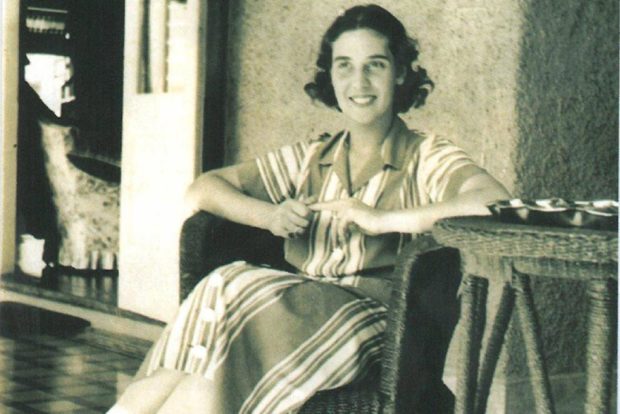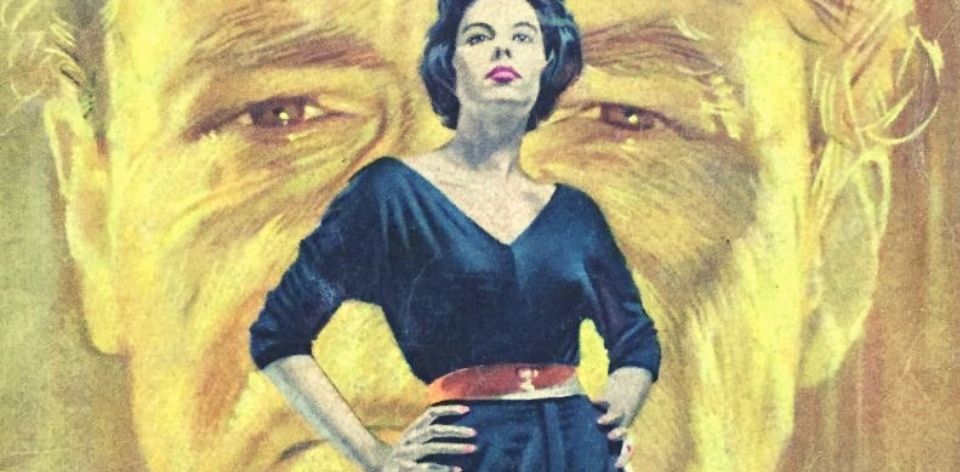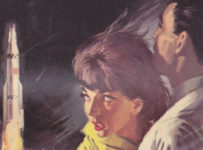Bond. James Bond. Is there a name more synonymous with spying, tuxedos, and shaken cocktails than the British secret agent? Join me as I read all of the James Bond books in 007 Case Files, encompassing Ian Fleming and beyond. For Your Eyes Only: there’s potential spoilers ahead.
When you think about James Bond, you probably think about GOLDFINGER. From the ridiculously named Bond Girl Pussy Galore to the most iconic villain this side of Ernst Stavro Blofeld, it drips with iconography. It would easily be one of Fleming’s most accessible and climactic novels in the series, except that he’s also turned the casual racism, misogyny and homophobia up to 11 as well.
Once again playing with structure, albeit not as radically as he did in From Russia With Love, Fleming divides his novel into three clear acts: “Happenstance”, “Coincidence” and “Enemy action.” In this way, he builds up Bond’s investigation of Auric Goldfinger through a chance encounter, a classic game of cat and mouse, and one of the most movie-ready finales he’d written at this point. Given that Bond wouldn’t reach the screen for another three years, it’s a prophetic narrative style.
Fleming often imbued Bond with many of his own traits, including his own golf handicap. This manifests in GOLDFINGER as one of the longest and most descriptive sequences of a golf game in a spy novel, one that is somehow even less engaging than watching 18 holes without the aid of martini. On a basic narrative level, it replaces card games in the standard structure of a Bond novel, as the two adversaries test each other’s mettle in a lower stakes version of their larger clash.
Yet more intriguing is Bond’s weariness of death. The book opens with Bond contemplating the squalid nature of a recent off-page death he was responsible for, and there’s a constant sense of inevitability to his final confrontation with Goldfinger as a result. It could be a continuation of the nihilism that first reared its head in Moonraker, or maybe it’s just indicative of Fleming’s weariness of the character, or at least of what he represents.

Fleming’s voice emerges in less admirable ways as well. The colonial attitude that ‘non-white races’ really want to be subjugated comes out in the depiction of Koreans this time around, specifically the animalistic portrayal of henchman Oddjob. We can expect this mindset from the evil Goldfinger, but Bond is equally and consistently dismissive of Korean characters. Then there’s Bond/Fleming’s internal monologue about lesbians and homosexuality more broadly, represented in Tilly Masterton and, of course, Pussy Galore.
Here’s a Fleming gem:
“As a result of fifty years of emancipation, feminine qualities were dying out or being transferred to the males. Pansies of both sexes were everywhere, not yet completely homosexual, but confused, not knowing what they were. The result was a herd of unhappy sexual misfits – barren and full of frustrations, the women wanting to dominate and the men to be nannied. He was sorry for them, but he had no time for them.”
Galore, like many of the other women in Fleming’s Bond novels, is depicted as both beautiful and broken in some way. Allegedly based on Blanche Blackwell, a Jamaican heiress who was said to be the love of Fleming’s later life, the author once again uses the motif of a past sexual assault to explain her hesitancy towards men. At his most dismissive, Fleming himself finally “breaks” Galore in the final act, when she speaks “not in a gangster’s voice, or a Lesbian’s, but in a girl’s voice,” as if to suggest the three are mutually exclusive. The raw masculinity of Bond has triumphed over the “fifty years of emancipation” that Fleming/Bond is lamenting. Galore is more succinct: “I never met a man before.“
It’s one thing to label these books ‘of their time,’ but 1959 wasn’t exactly the dark ages, even from the vantage point of Fleming’s Goldeneye estate in Jamaica. It’s hard to overlook whole chapters of toxic masculinity writ large. Which is a shame, because all the other high fantasy elements of GOLDFINGER are the stuff that hetero action fantasies are made of.





